Inpatient Drug Rehab near Columbus, Ohio
Nearly 10 percent of Americans have had a drug use disorder at some point in their lives. However, only 25 percent of those people received the treatment they needed. While you may look to statistics like these to confirm your fears about seeking help, it doesn’t show the reality that many adults in active recovery are leading happy and productive lives. At some point, they decided to take the leap and begin their recovery journey. Don’t wait any longer and get the help you deserve with the support of an accredited inpatient drug rehab in Columbus, Ohio.
When Is It Time to Consider Inpatient Drug Rehab?

Inpatient drug rehab, also known as residential treatment, helps adults recover from substance use disorders. To some, it’s considered to be the most intense substance abuse treatment option. However, the intensity provides a high level of medical care and mental wellness resources for effective long-term recovery.
So, who should choose inpatient care services over other treatment options? Common signs you may benefit from attending a residential treatment center include:
- Missing work, school, and other, important obligations due to substance use
- Withdrawing from loved ones
- Declining mental and physical wellness
- Losing interest in activities you used to enjoy
- Becoming hostile when someone suggests you have an addiction
- Spending most of your time thinking about, using, or recovering from substance use
- Being unable to stop substance use despite its impact on your life
An important factor to consider is your home environment. If you don’t have a safe and supportive environment to return to every night, an inpatient rehab program may be the best place to start recovery. Inpatient treatment provides a structured environment, free of triggers, that puts your recovery first. Moreover, this allows patients to heal at their own pace with the support of staff and other patients.
Considering your overall mental health needs will help you determine if inpatient drug rehab is right for you. However, if you know you need help but are unsure if this program is right for you, don’t worry. Our team will ensure you’re placed in the correct level of care.
How Can Inpatient Drug Rehab Help You Recover?
When considering inpatient drug rehab, you may be unsure what to look for to determine your ideal treatment program. However, being familiar with what different inpatient drug rehab centers and their programs have to offer can help you make the best decision for your recovery.
One of the biggest benefits of inpatient rehab is one-on-one treatment. Residential treatment centers have a large staff comprised of experienced physicians, mental health professionals, addiction specialists, and more to provide comprehensive care to patients. These multi-disciplinary teams make it possible to tailor programs to the needs of every patient.
Since patients remain at the center for the duration of their program, we provide food, individual and group recreational activities, and other therapeutic treatment methods to help patients feel at home. Starting recovery can be challenging, but the clinical staff at our treatment center will provide you with the guidance and resources you need every step of the way.
Drug Addiction Treatment Programs
Not all drug addiction treatment programs are the same. Therefore, it’s important to consider your needs and how different programs align with your recovery goals. At The Woods at Parkside, we utilize diverse evidence-based treatment programs to meet the unique needs of every patient. With the combination of our well-rounded services and a welcoming environment, our patients can focus on improving their mental and physical well-being.
Medical Detox
Upon arriving at our addiction treatment center, most patients start with the medical detox program. Detox can be unpleasant, but we provide 24/7 supervision to help patients overcome withdrawal symptoms. Your comfort and safety are our top priorities, so we do our best to make the process as smooth as possible.
Detoxing helps your body remove the toxins from drug or alcohol use and helps it recover from dependency. This stage of recovery typically lasts from three to 10 days or longer, depending on the substance and your overall health. We believe that a safe detox is the first step in a lasting recovery. From here, patients begin their individualized treatment programs.
Residential Drug Treatment
After completing detox, patients begin their individualized drug treatment program. This part of recovery helps patients heal from the emotional effects of their addiction. To start, inpatient rehab usually lasts between 45 to 90 days. But the residential treatment program at The Woods at Parkside follows the traditional 45-day treatment program.
With that said, the length of stay can vary according to your needs and program. Patients who are unsure about entering rehab or have less severe symptoms may have a shorter length of stay. On the other hand, those with more severe symptoms may need more time to build a foundation for lasting recovery.
Moreover, At The Woods at Parkside, we follow the 12-step philosophy. This philosophy helps patients recognize the attitudes, behaviors, and habits contributing to their addiction. Additionally, it guides them through self-improvement and accountability. Following the pillars of the 12-step philosophy are crucial in helping patients stay sober after they complete their inpatient drug rehab program.
Residential Dual Diagnosis Treatment
It’s not uncommon for those with a drug use disorder to have an additional mental health disorder. As a result, many patients at inpatient drug rehabs receive treatment for co-occurring mental health conditions, also known as dual diagnosis.
Some co-occurring mental health conditions include:
- Anxiety disorders
- Depression
- Bipolar disorder
- Attention-hyperactivity deficit disorder (ADHD)
- Personality disorders
- Eating disorders
Addiction and mental health are inseparable. Some individuals struggling with an underlying mental health disorder turn to drugs or alcohol to cope. But others develop mental health disorders as a result of their substance use and addiction. No matter the case, your addiction and mental health feed into one another to worsen the symptoms you’re experiencing.
As a result, a substance use disorder paired with one or more mental health disorders can be detrimental to your overall wellness. That’s why patients with a dual diagnosis benefit from this specialized treatment program.
Treatment Program Features

The most important elements of inpatient drug rehab are the treatment programs. These activities take up most of the day as patients work toward healing one day at a time. Some of the evidence-based treatment modalities offered through our inpatient drug rehab programs include:
- Individual counseling
- Group therapy
- Family education
- 12-step programming
- Life skills groups
- Stress management
- Music therapy
- Recreational therapy
- Relapse prevention planning
A combination of these treatment modalities helps patients address different aspects of recovery. For instance, individual counseling and stress management can help patients discover healthy coping mechanisms. Other methods, including group therapy and our life skills groups, can improve communication skills. But above all, our therapeutic treatments guide patients toward long-term recovery from drug addiction.
Inpatient Drug Rehab Programs at The Woods at Parkside
The Woods at Parkside is a dual diagnosis treatment center that offers inpatient drug rehab programs. The structure and calming atmosphere of our treatment center provide the resources you need to heal. But most importantly, we provide the necessary mental health and addiction treatment to those seeking support as they recover.
To learn more about our drug addiction treatment programs, call our admissions team at 419-452-4818 or submit a confidential contact form online. No matter where you’re at in your recovery journey, our team at The Woods at Parkside can help you overcome addiction and achieve your long-term recovery goals.



























